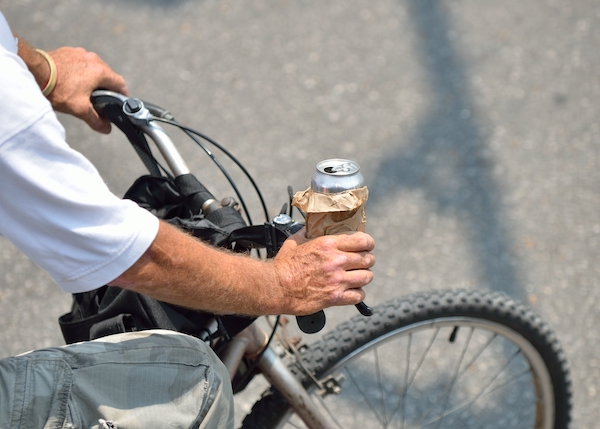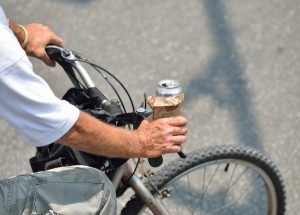A minority of states such as Alabama, Colorado, Georgia, Idaho, Florida and Hawaii have a broad definition of what constitutes a vehicle which includes any and all devices that are capable of transporting people. Some states such as South Dakota explicitly include bicycles in their definitions of vehicles in their wording of DUI offenses. Other states such as California do not include non motorized bikes in their DUI laws, but have other laws that specifically make riding a non motorized bicycle while intoxicated illegal.
Biking DUI Laws by State
Here is a list of all states and if you can receive a DUI while riding intoxicated:
| State | Receive DUI while riding a bike |
|---|---|
| Alabama | Yes |
| Alaska | No |
| Arizona | No |
| Arkansas | No |
| California | No, but there is a separate law that makes driving a bike while impaired illegal |
| Colorado | Yes |
| Connecticut | Yes |
| Delaware | No |
| District of Columbia | Yes |
| Florida | Yes |
| Georgia | Yes |
| Hawaii | Yes |
| Idaho | Yes |
| Illinois | No |
| Indiana | Yes |
| Iowa | No |
| Kansas | No |
| Kentucky | No |
| Louisiana | No |
| Maine | No |
| Maryland | Yes |
| Massachusetts | No |
| Michigan | No |
| Minnesota | No |
| Mississippi | Yes |
| Missouri | No |
| Montana | No |
| Nebraska | No |
| Nevada | No |
| New Hampshire | Yes |
| New Jersey | No |
| New Mexico | No |
| New York | No |
| North Carolina | Yes |
| North Dakota | Yes |
| Ohio | Yes |
| Oklahoma | No |
| Oregon | Yes |
| Pennsylvania | Yes |
| Rhode Island | Yes |
| South Carolina | No |
| South Dakota | Yes |
| Tennessee | No |
| Texas | Yes |
| Utah | Yes |
| Vermont | No |
| Virginia | No |
| Washington | No |
| West Virginia | No |
| Wisconsin | No |
| Wyoming | Yes |
Do bikes need a State License?
Keep in mind that bikes don’t require a state license to operate. Whereas, motor vehicles require driving licenses which are considered by the state to be a privilege to possess, and not a fundamental right. This is an important legal distinction and the likely reason why some DUI laws don’t apply to non motorized bikes.
Clearly, the common bike is less dangerous than a motor car or motor cycle. They weigh less and don’t go nearly as fast, and the risk of harm to the driver and general public is minimal. Therefore, the public safety risks and concerns associated with drunken bike operators is far less than with their motor vehicle counterparts.
On the other hand, when non motorized bicycles are operated on public streets and thoroughfares they are subject to many of the same laws, rules and ordinances as the motor vehicles they share the road with, and their safe operation impacts not only themselves but others on the street as well. That is why a variety of states make distinctions between bikes driven on public streets and highways as opposed to residential, or rural areas.
In many large cities such as New York and Chicago hundreds of bicycles and non motorized vehicles are employed by a variety of delivery businesses and operate in downtown traffic. Safety surrounding these bikes is a paramount concern, and operating in these conditions while intoxicated would be extremely dangerous to not only bikers, but also to pedestrians and motor vehicle operators.
Also, most states that do have DUI laws against riding bikes while intoxicated apply the same .08 (BAC) blood alcohol content level requirements as is applied to motor vehicle operators.
In conclusion, please be aware that although you may not be arrested for DUI, every state has laws against public intoxication, and public drunkenness, and you may get in trouble with the law while riding a bike while drunk.



